Rally the Trends – August
A monthly round-up of digital marketing, SEO, and social media updates, summarized for you.
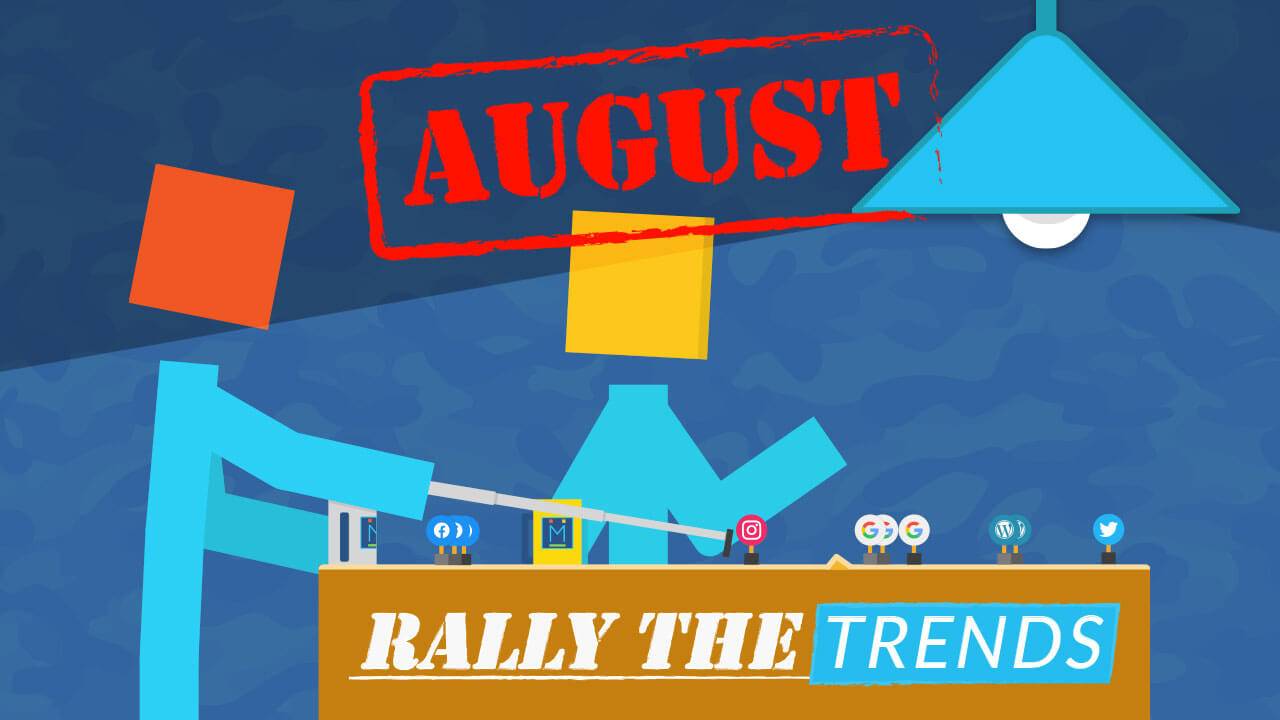
Oh, hello there. Welcome to the fourth edition of Rally the Trends! Thanks for visiting this highlight reel of the digital marketing world. We’re so glad you’re here.
SEO
Code of Conduct: If you’re interested in SEO or work in that field, here’s something to think about: you don’t have to code to be a great SEO. Is it a valuable skill? Absolutely. Do you need to know the capabilities of the major coding languages like Python and JavaScript? Yes, but you don’t have to memorize the actual languages to be fantastic at your job. Some people (SEO professionals in particular) might think that being fluent in HTML, for example, is a must for anyone working in SEO. In reality, though, there are so many parts to SEO – very rarely is one person great at all of them. There’s room (and you could even say a need) for SEOs of all capabilities, from technical elements to content writing to business sense, to be great in the industry.
Optimizing is Caring: SEO – both its practice and practitioners – is often removed from the brand decisions of a company. But why is that? Brand affects the performance that SEOs are expected to excel at (conversions, website sessions, etc.), and they have a keen understanding of and access to data that can benefit the organization as a whole. As Robin Lord says in his article, this will help SEOs “get credit for the successes we’re contributing to and avoid the losses.” The branded decision tree below asks some questions that can help you get started in thinking through this for your own brand.
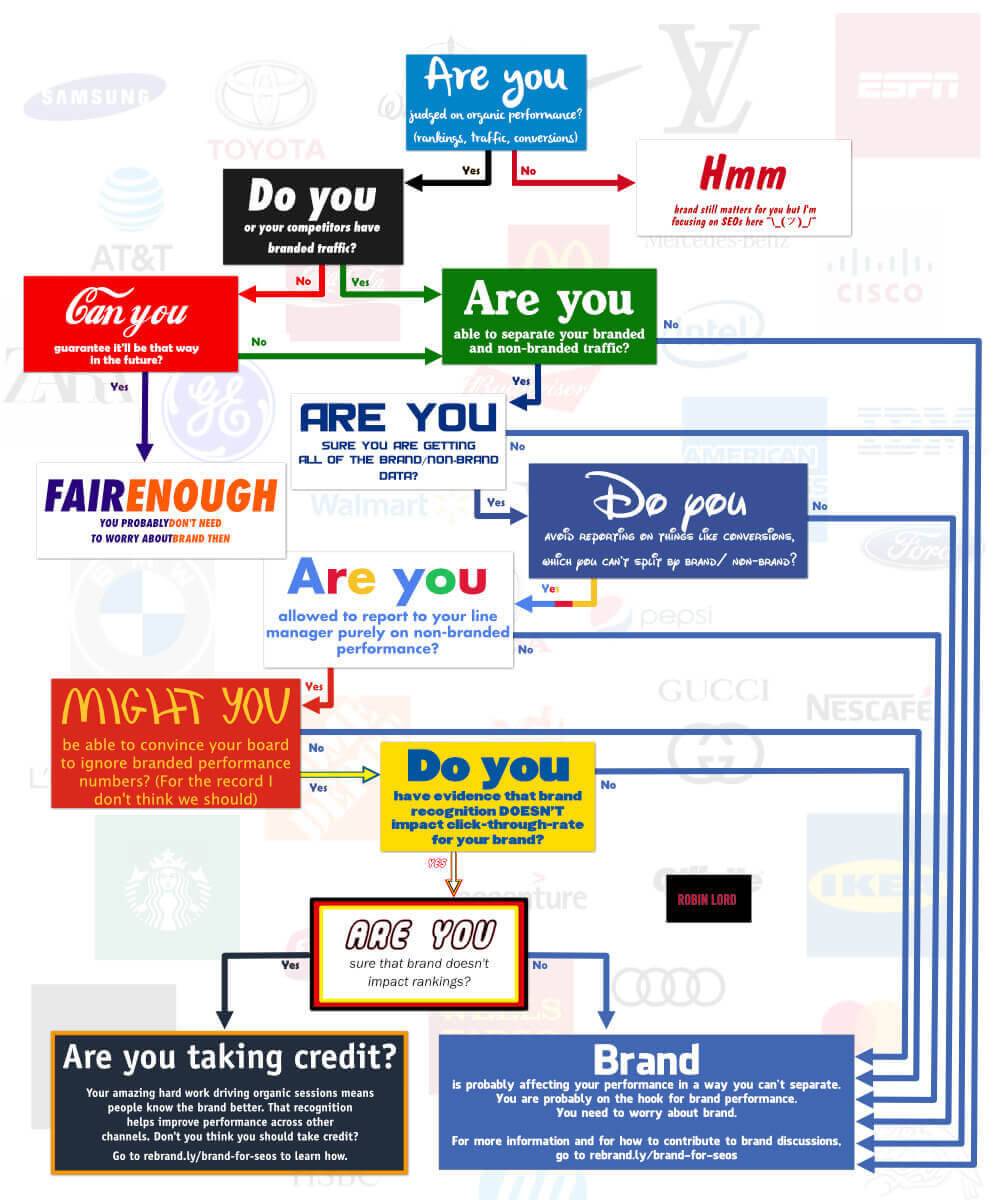
Source: SearchEngineLand.com
Digital Marketing
Big Four(tunes): At the end of July, Congress virtually met with 4 people who have changed the world as we know it: the CEOs of Amazon, Apple, Facebook, and Google. The issue on the table? Determining if these titans of industry and their respective companies are negatively impacting American society. Big Tech companies have operated for a long time with very little government regulation. This hearing was the result of years of investigation and millions of documents. Each CEO had some difficult questions to answer, and the question of a need for tougher antitrust laws still remains.
525,600 Minutes: That’s how we measure, measure a year. Domo’s annual Data Never Sleeps chart gives a great graphic representation of what is happening online every minute of every day. This is a (partial) view of how connected our world is. This has truly been the year of online calls, as can be seen in the number of video/voice calls, Zoom meetings, and Microsoft Teams connections. Another interesting note is the increase in users posting Instagram Stories. Compared to last year’s infographic, Stories posts have increased by 70,000 per minute. With people being stuck in their homes this year due to coronavirus, Stories were a way to share life and create safe, virtual connections.
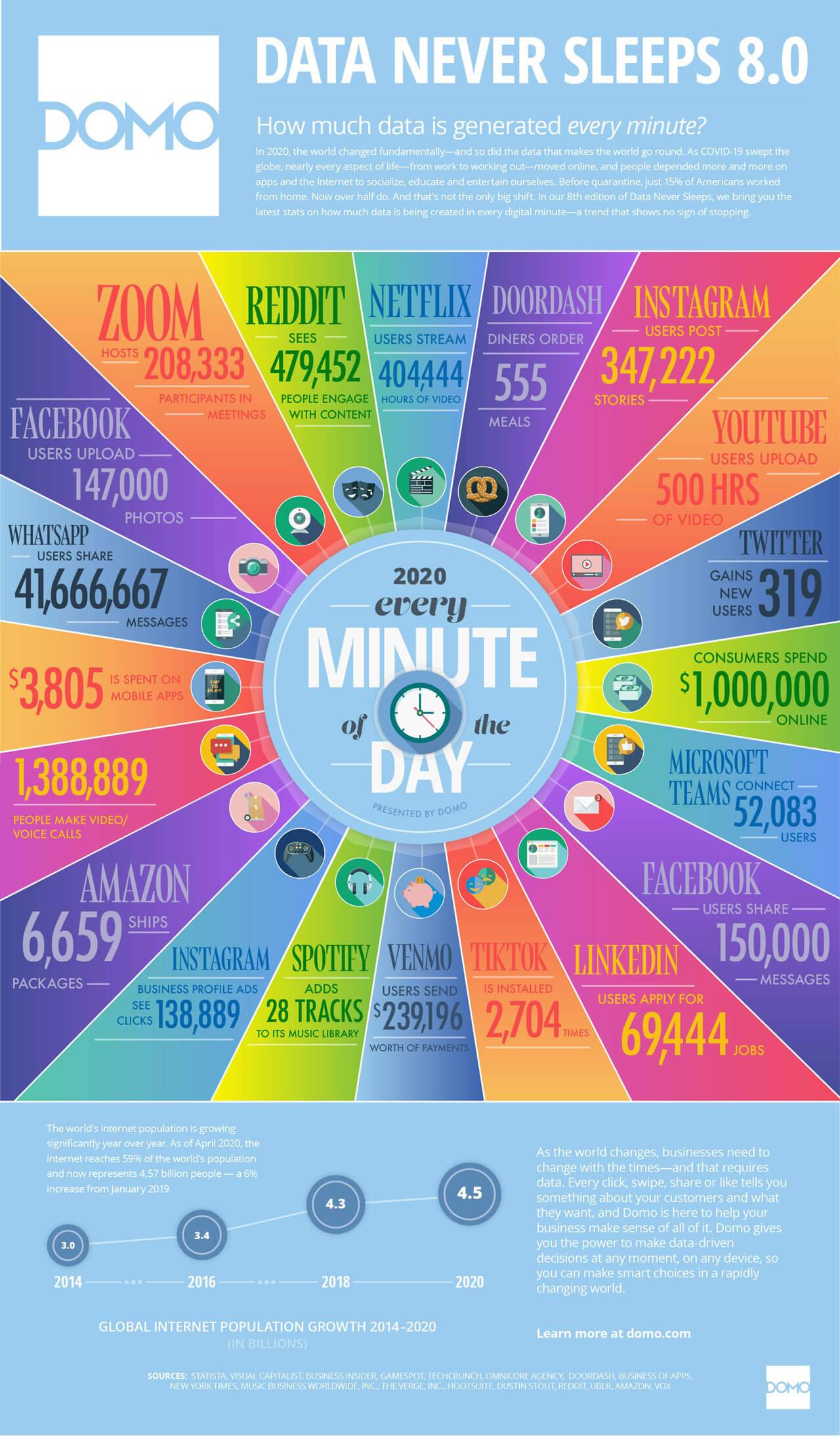
Source: Domo.com
Concise Commerce: According to a recent study from Unbounce, concise landing pages tend to have better conversion rates. This report, based on conversion rate data from nearly 16,000 landing pages, found that using positive language
and fostering the feelings of anticipation can help with conversions as well.
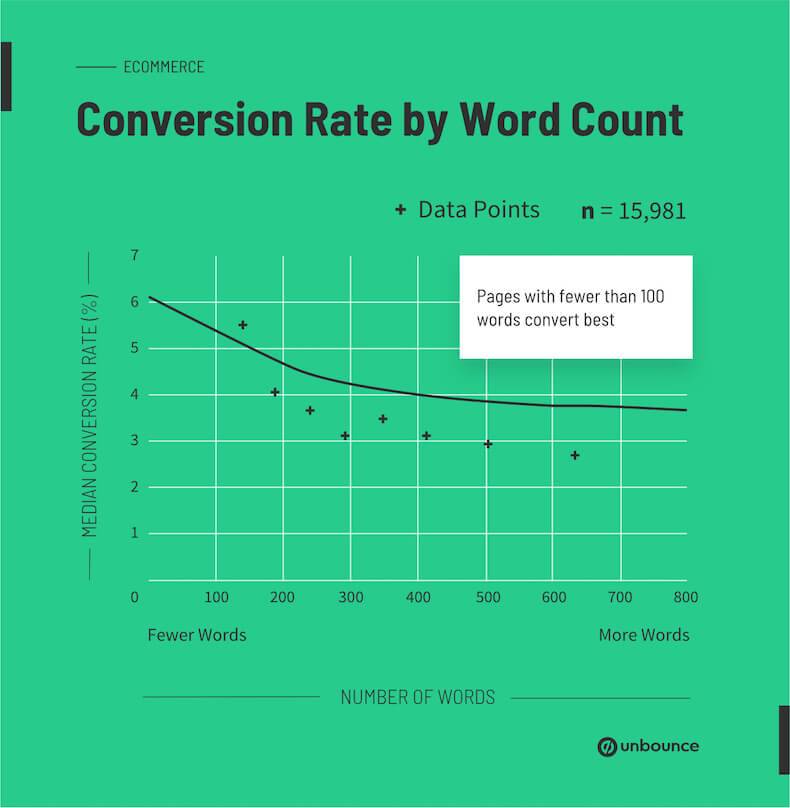
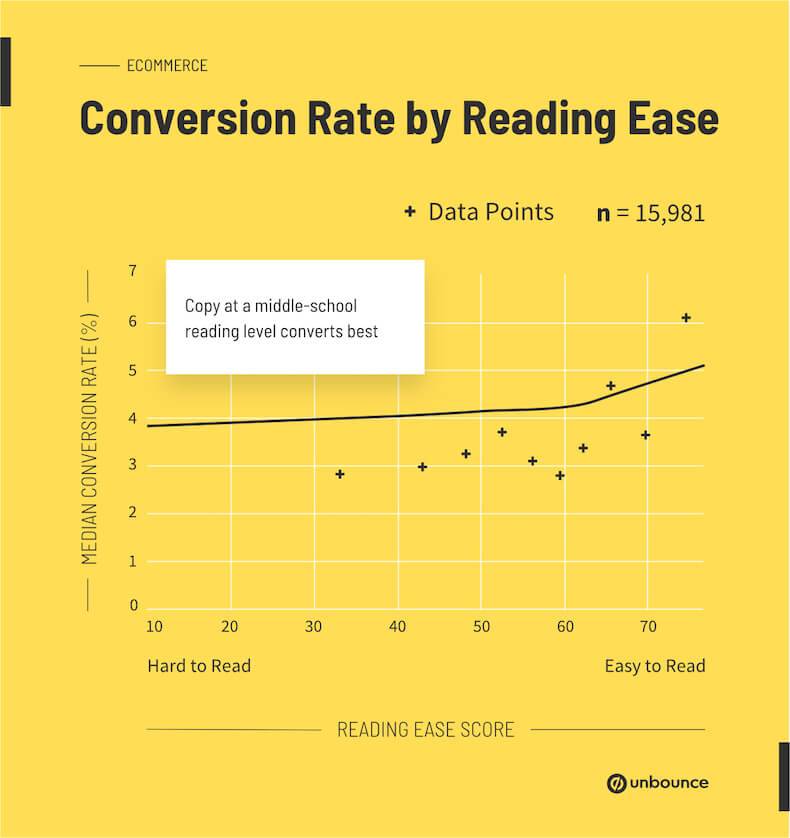
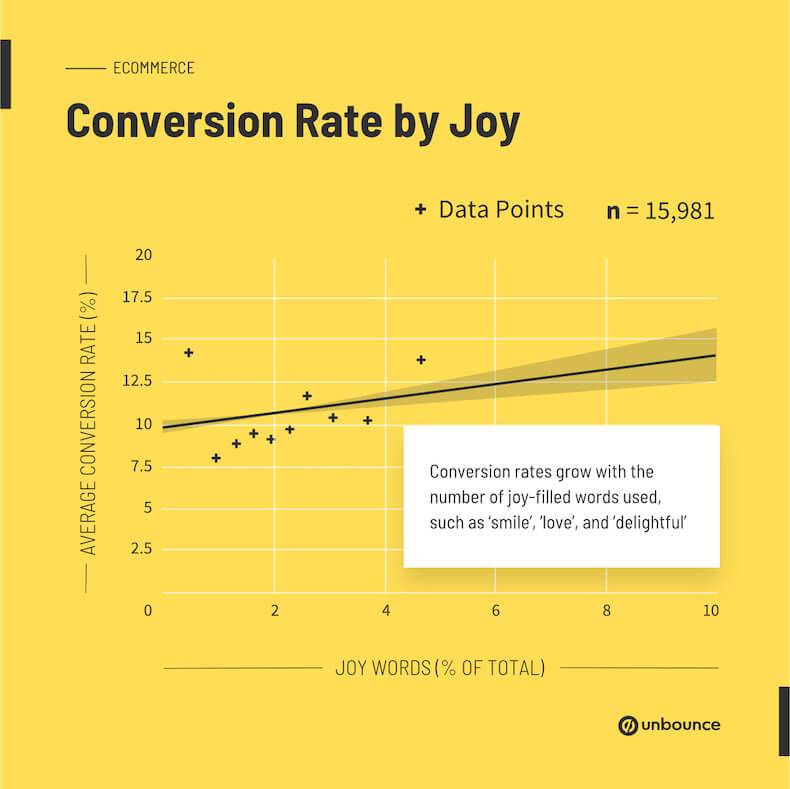
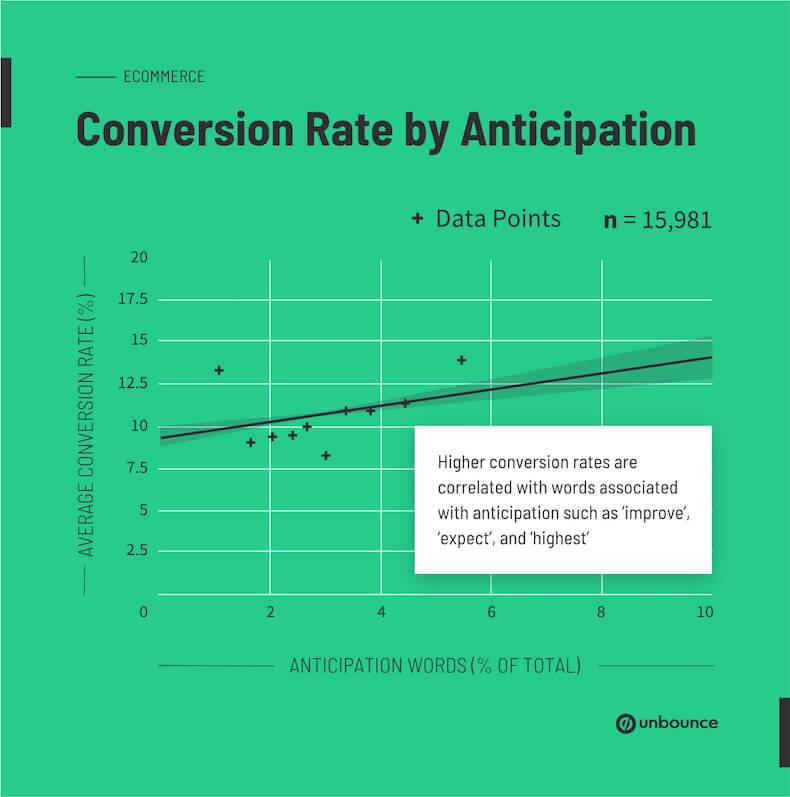
Source: MarketingProfs.com
Ad Boycott: Bust or Brilliant?: More than 1,000 companies joined the #StopHateForProfit ad boycott movement against Facebook in July. Some publicly joined, while others more quietly reduced their spending. The 1,000 that joined, however, comes from a pool of more than 9 million advertisers. In short, the boycott did not do significant damage to the company’s bottom line. However, Facebook’s reputation certainly took a hit because of the movement, and it helped bring awareness to some of the platform’s problems. The company has also announced changes based on the recently published civil rights audit, which has been conducted over the last two years.
#Facebook: If you run a Facebook business page, you may have noticed that the platform has recently started suggesting hashtags for posts. These prompts indicate that adding hashtags will improve reach. In previous years, it had been shown that using hashtags on Facebook did nothing (at best), and actually decreased reach in some cases. The platform is now suggesting hashtags based on the post’s text, which is similar to LinkedIn.
It’s Been Reel, TikTok: Instagram Reels rolled out across the U.S. and many other countries earlier this month. This feature is essentially a copy-and-paste of TikTok, but with fewer options for editing and filming. With TikTok facing an uncertain future and a ban on U.S. transactions starting in September, Instagram is looking to attract the massive audience of the ByteDance app. TikTok’s format is not the only thing Instagram is trying to replicate; it’s also trying to attract TikTok creators. Instagram is offering hundreds of thousands of dollars to creators who will leave TikTok and post exclusively on Reels. It’s also not surprising that Reels is not TikTok’s only competition. Apps like Triller and Byte (unrelated to TikTok parent company ByteDance) are very popular in the app store and are looking to fill the TikTok-sized hole in America’s heart – and screen time – if the app gets banned.
Feeling Caught Up: On Instagram, that is. The app recently expanded its home feed with suggested posts. After reaching the “You’re All Caught Up” reminder, you will now be able to choose between viewing older posts or looking at suggested posts. This new feature will show posts and accounts more directly related to accounts you already follow. This is different from the Explore page, which displays curated content based on broader interests, although it is still based on the accounts that you interact with. Encouraging continued scrolling, as this update seems to do, marks a change in tone for Instagram. The end-of-feed notification introduced a couple years ago was added with users’ mental health in mind, according to the company’s CEO and co-founder, with the goal to help people know how much time they were spending on the app. Suggesting posts in-feed seems like a way to keep people on Instagram for longer periods of time.
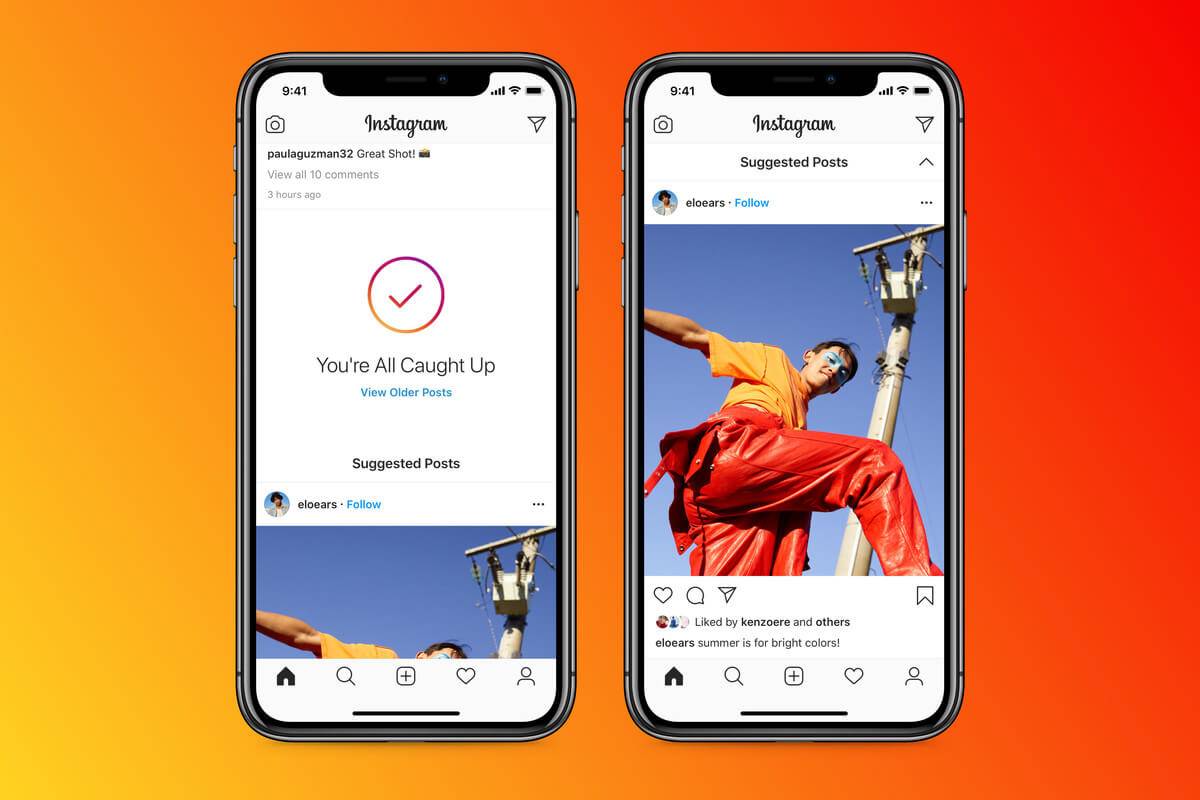
This is Your Government Speaking: Twitter has recently added tags to accounts that are affiliated with government or state entities. The “government account” designation will be added to the profiles of key officials, such as spokespeople and ambassadors. A label of “state-affiliated media” will be seen on accounts of media companies associated with the state, as well as their senior staff. The goal of this is to increase the transparency of where sources are coming from on Twitter and if they are legitimate. It also might make users think twice before sharing when seeing the label and what source it is associated with. Facebook added similar labels earlier this year.
A-Town Shoutout
How are you doing, Atlanta? The return of sports has been a taste of normalcy to some, even as fans mourn not being able to attend in person. Football and soccer fans in Atlanta will have to wait at least until the end of September to cheer on their teams in person. Last week the Atlanta Falcons and Atlanta United announced that they will be playing without fans at Mercedes-Benz stadium through the end of next month. While we cheer on all our teams from home, it’s fun to look forward to going to games again one day. The energy in arenas and stadiums on that day will be something like we’ve never felt before.
Stay safe, Atlanta. Remember how far you’ve come. Keep building better relationships. Thanks for reading to the end. We’ll see you soon. 👋🏽👋🏾👋🏿










